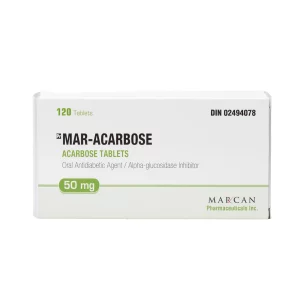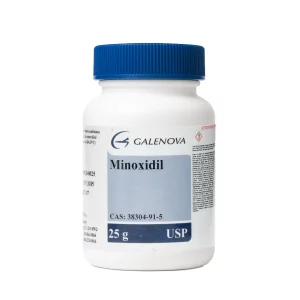Your cart is empty.
Your cart is empty.
Emerging science is turning toward a familiar workhorse in medicine: metformin. Originally prescribed for blood sugar control, this unassuming drug is now sparking intense interest for its potential to influence the very process of aging. This article dives into the fascinating connection between metformin and longevity, illuminating the cellular pathways through which it might exert its effects.
Given its established use in managing insulin resistance, the potential role of metformin in PCOS is also an area of interest. We’ll explore how researchers investigate metformin-based strategies in healthy individuals, aiming to unravel its promise for extending not just lifespan but healthspan. It is essential to consult with a healthcare professional for proper guidance on purchasing metformin with a valid prescription.
Metformin is a widely prescribed medication for type 2 diabetes that helps control blood sugar by enhancing the body’s insulin response and reducing liver glucose production. Recently, researchers have begun exploring its potential beyond diabetes management, focusing on its effects on metabolism, inflammation, and cellular repair.
Studies suggest that metformin may interact with biological pathways related to aging, potentially promoting healthy aging and extending lifespan. Scientists believe it might help maintain cellular and metabolic health, reducing the risk of age-related diseases and slowing the decline in physiological functions associated with aging.
Here’s a closer look at the biological pathways that metformin affects, and how this might influence aging:

Clinical trials and research studies are exploring different metformin dosing schedules. For example, the TAME (Targeting Aging with Metformin) trial examines specific dosages to evaluate the drug’s effects on aging-related outcomes. Typical dosage ranges in longevity-focused research are generally between 500 and 1000 mg daily.
It’s critical to understand that individualized dosing is essential. Each person’s health status, metabolic profile, and potential risk factors must be carefully considered. Medical supervision is crucial when using metformin for anti-aging purposes, especially for healthy individuals who do not have conditions like diabetes.
Your doctor will be key in monitoring your health and adjusting dosages to maximize potential benefits while minimizing possible side effects. This ensures that any metformin is tailored to your specific health needs. Do not start taking metformin for anti-aging purposes without consulting your physician.
The TAME (Targeting Aging with Metformin) study is a major clinical trial investigating metformin’s potential to promote longevity. This study aims to determine if metformin can delay the onset of age-related diseases and extend healthspan—the period of life spent in good health.
Animal studies have shown promising results, with metformin demonstrating the ability to extend lifespan and improve health markers in some species. Human research has also indicated potential benefits, such as inflammation reduction, metabolic biomarkers improvements, and possible prevention of age-related diseases. Key publications have highlighted metformin’s impact on reducing risks for cardiovascular diseases, cognitive decline, and certain cancers.
While these findings are encouraging, it’s essential to acknowledge the limitations of current studies. There are still questions about metformin’s long-term efficacy and safety for healthy individuals. More research is needed to fully understand the extent of its anti-aging effects, and long-term studies in humans are essential.
Based on early research, potential candidates for metformin’s anti-aging benefits may include:
However, metformin should be used with caution, especially in people with low BMI, low activity levels, or those taking certain other medications. Medical supervision is necessary to determine who may benefit and to ensure safe use. It is not appropriate for everyone.

Current research suggests some aging-related biomarkers and risk factors, but it’s a complex process. Metformin may impact aging-related processes, but it’s not a guaranteed solution. Maintaining realistic expectations and relying on scientific evidence and medical advice is essential.
Many trials use dosages in the 500–1000 mg daily range, but you should never start taking any medication, including metformin, without consulting your healthcare provider. Individual factors such as your health status and metabolism will determine your appropriate dosage. Self-medicating can be dangerous.
No, research suggests that metformin supports metabolic health and reduces inflammation in non-diabetics. The drug’s broader effects on cellular processes are of interest in the context of aging. However, its use in non-diabetics is still investigational and should only be considered in a clinical trial or under close medical supervision.
Potential benefits may appear gradually over months or years. Long-term consistency is often required in research studies. It is critical to follow any prescribed regimen carefully and monitor your progress under medical supervision.
Eating less, exercising regularly, and some plant-based compounds may work similarly to metformin, but we need more research to understand this better. These options should be part of a complete approach to healthy aging that includes a good lifestyle and diet. Always talk to your doctor before changing your diet or exercise routine. While metformin may help with aging, it’s essential to be cautious and do thorough research with medical guidance to know its benefits and risks. This information is for learning purposes only, not medical advice.


Acarbose blocks carbohydrate breakdown in the small intestine, preventing rapid glucose absorption spikes.

Dasatinib eliminates senescent cells through selective apoptosis, clearing age-damaged tissues from the body.

Metformin inhibits hepatic glucose production while enhancing insulin sensitivity, offering cost-effective Type 2 diabetes management.

Minoxidil dilates scalp blood vessels, increasing nutrient delivery to hair follicles while extending the anagen growth phase duration.
Unlock savings on bundles and elevate your online experience today!